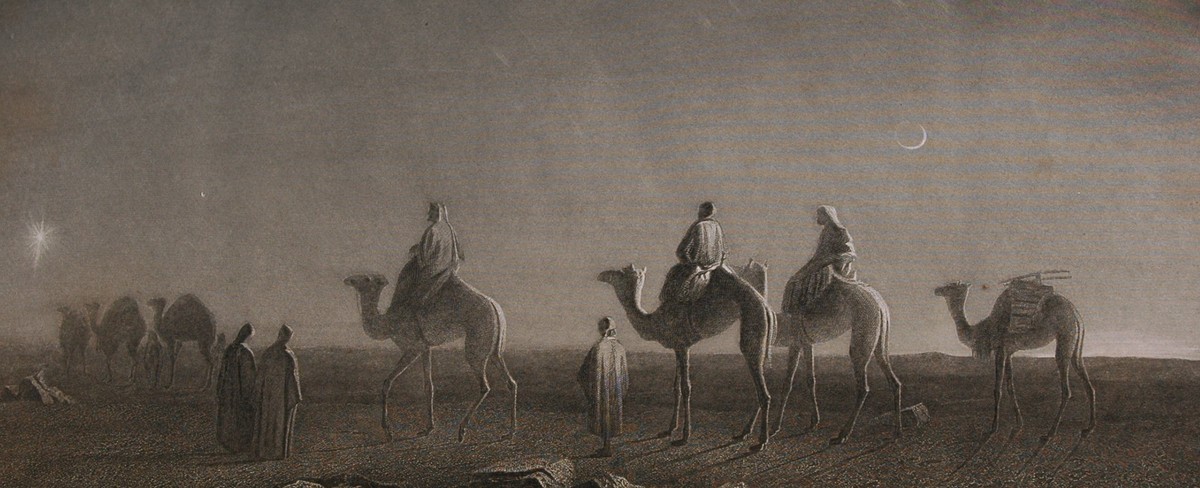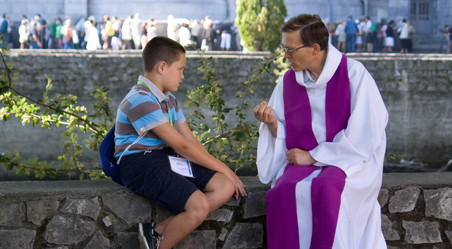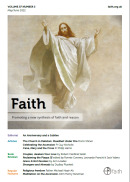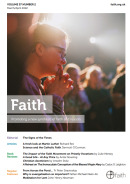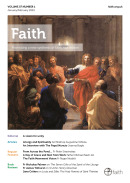Featured
Editorial: Schools and the Faith
The Church was running schools across Britain long before there was any State involvement. There were Catholic schools even in the years when the Church was cruelly persecuted in Britain. In more recent times, Catholics ran schools from the early 19th century onwards, with some public funding from the 1850s
The Cosmic Meaning of the Eucharist: “The Word was made flesh and tabernacled among us.”(John 1:14)
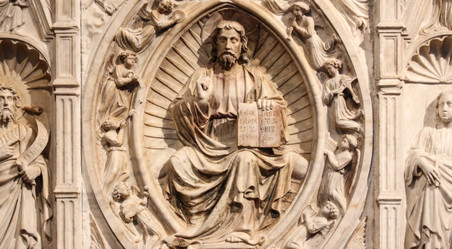
The Last Supper took place the night before Jesus died on the cross. It was His last message to His disciples and to us. Two questions should be asked – What is the importance of the Eucharist in the plan of Christ? A further question arises - is there a cosmic significance to the Eucharist?
Father Holloway and Professor Polanyi

In one of the notes he wrote to the memoir prepared by his mother Agnes, Fr Holloway tells the story being stopped from doing a doctorate by his tutor at seminary. The latter informed Bishop Amigo that although his pupil’s ‘heart was entirely in the right place… he was not so sure of my head.’
Interview:Joanna Bogle talks to Curtis Martin founder of FOCUS
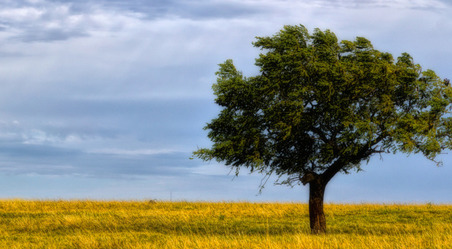
Students from across Britain joined a large group from across the USA at St Mary’s University, Twickenham, this summer for The Commission, an event organised by FOCUS, the Fellowship of Catholic University Students.
“The aim is to accompany young people in their journey of faith – and for that, we need spirit-filled evangelists, who are really in love with God” said Curtis Martin, founder of the movement, which began in America and is now in its 20th year.
Holloway on: The Recognition of Jesus
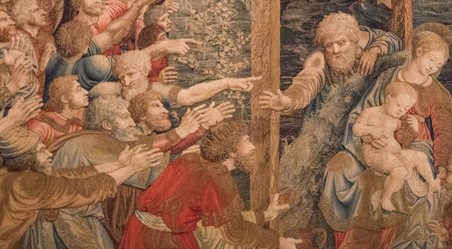
Doctrine and personal appeal — sheer radiant power to attract men and women and to hold them in love — this was one thing and one force in Jesus Christ. The person we call The Word was made flesh and spoke an intelligible and humanly expressed word of truth and of way of life. We call it his ‘doctrine’.
Book Reviews - A marriage of biology and theology?
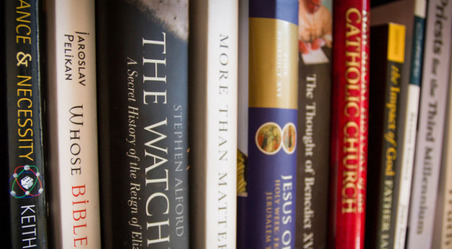
Discussion of animals in a theological context, when it does arise, has tended to be limited to moral questions: Can we experiment on animals, and if so, for what purpose? Do we have a duty to make sure farmed animals are reared in comfort? Is recreational hunting to be condemned? Theological talk about animals typically drifts into the realm of dogmatic theology only in the question of the survival of animals after death.
Book Reviews: Reintegrating the human subject into objective metaphysics
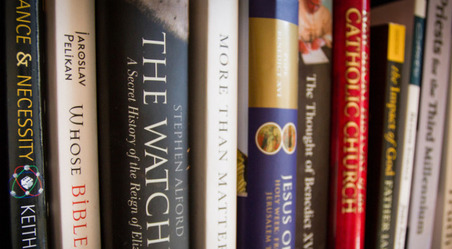
Alister McGrath has written a fascinating hymn to the human transcendence of the empirically verifiable. He offers an attractive witness to his own Christian faith but argues that in the final analysis it is not experimentally or rationally “provable”. But nor is the dogmatic New Atheist rejection of them. There must be something that grounds rational “map making” of what we observe, experimentally or otherwise.
Book Reviews: How can Orthodoxy be reassured about the Pope?
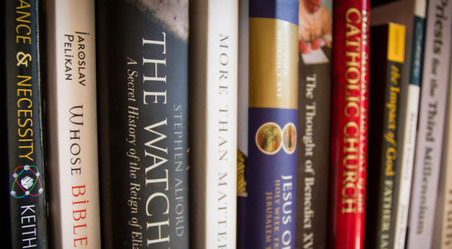
The book under review is an immensely learned and scrupulously fair account of an historic debate. The Latin tradition claimed with increasing emphasis, not to say stridency, that, presiding over the pastoral and prophetic ministry of the Church’s bishops, is an ‘office of Peter’ which is vested for all time in the bishops of Rome.
Book Reviews: From unforgiveness to forgiveness
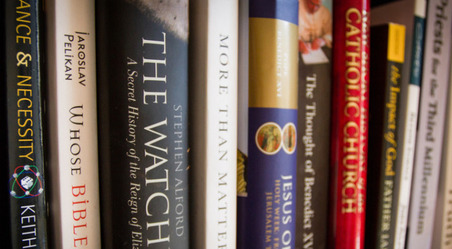
“Sophia Institute is a non-profit institution that seeks to nurture the spiritual, moral, and cultural life of souls and to spread the Gospel of Christ in conformity with the authentic teachings of the Roman Catholic Church.”
Kathleen Beckman’s book certainly fulfils this aim.
-
Editorial: Schools and the Faith
Editorial: Schools and the Faith
The Church was running schools across Britain long before there was any State involvement. There were Catholic schools even in the years when the Church was cruelly persecuted in Britain. In more recent times, Catholics ran schools from the early 19th century onwards, with some public funding from the 1850s. Large numbers of children were educated in this way. The State only caught up in 1870, by which time the Church had long led the way and set the tone and standards. Will our Catholic schools be allowed to continue in freedom?
OFSTED, the frequently jargon-laden bit of officialdom which inspects schools and declares them to be of an appropriate standard, seems to be confused about what it is allowed to do. There are reports of OFSTED inspectors demanding that schools impose a weird agenda on children, teaching that it is possible for a boy to become a girl and vice versa, that sexual identity is not something specific, that all our knowledge of biology on this subject has been wrong. It is difficult to recruit Catholic teachers: the collapse in Catholic practice over the past decades – noted repeatedly in FAITH magazine, where solutions to the problem are also always presented – means that the pool of available candidates is in any case small. Recruiting good head teachers is even harder – some local authorities have resorted to establishing networked schools with a head in charge of two or three at once. And will the system of public funding for Christian schools – centred on the fact that such schools existed long before those established by any other authority in Britain – cease if the schools insist on retaining their Christian identity?
Avoiding these questions by smugly announcing that we don’t need schools and that parents can teach their own children at home simply won’t do. We cannot consign children to a bleak future dependent on the whims of Mum’s latest boyfriend and occasional visits from a social worker committed to the sort of agenda described above. The Church has the right and duty to educate children, and has a special concern for the children of the poor – including the spiritually and culturally poor. For many, school will be the only place where they encounter God – who longs for them to be allowed to do so. Children who are privileged to have a faithfully married mother and father who are functionally literate and have a desire to instruct their offspring, and a commitment to the Church, are privileged indeed: for such children, home is already a place of education and spiritual nourishment. For the others – we must offer hope and practical assistance.
For decades, discussion about Catholic schools in Britain centred on demands for a fair share of the public funds available. Today this overlaps with debates about the actual content of religious education and about the freedom to offer children what the Church really teaches. We need a robust approach: Church-based schools are popular, sometimes embarrassingly so. People lie and fib in order to get their children into our schools. “Yes, Father, we are regular Mass-goers”. “Er...we’ve only just moved into the parish”. “Well, this is sort of our real address – we sort of live with my nan...” We must defend our schools with confidence and the knowledge that we are offering something that large numbers of people want. We must ensure that our Catholic schools teach Catholic doctrine, and uphold Catholic values – including the values that might clash with current trends in British society: marriage as the lifelong union of a man and a woman, the need for human life to be cherished from conception to natural death, the truth about our sexual identity as male or female. We must insist that Religious Education in Catholic schools is centred on the fullness of the Catholic Faith as expressed in the Catechism of the Catholic Church. As this first term of the School Year ends, our Catholic schools will be marking Advent and Christmas with carol services, Nativity plays, parties and celebrations. May they continue to be beacons of light in an often dark scene of moral and spiritual confusion in modern Britain.

